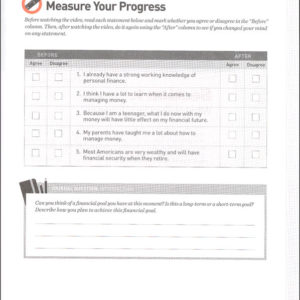
If such valuation discrepancies actually existed, the institutional market makers in the options pits with their multimillion-dollar computer models would have exploited them in milliseconds, long before a retail investor ever even saw any such discrepancies. Unlike a casino, the options market doesn't rip you off, pricing at or very near "fair value," as I'll describe below.Īs an aside, I wouldn't recommend placing any credence in those options newsletters that claim to have found "undervalued" options to buy or "overvalued" options to sell. Is a net credit of $0.85 a fair price to receive for selling the call spread? The short answer is yes.
#JIM FINK OPTIONS FOR INCOME REVIEW PLUS#
When the options expire, the price at which a seller of this call spread breaks even is $33.35 ($32.50 plus $0.85), meaning that you make at least a penny of profit on the option spread if eBay closes below $33.35 and you lose at least a penny if the stock closes above $33.35 on the date that December options expire (Dec. Your "net credit" (i.e., the amount of cash you will receive after you deduct the cost of the purchased option from the income generated by the sold option) will be $0.85 per contract ($1.40 minus $0.55) or $85 ($0.85 times 100 shares per contract). The $32.50 call is priced at $1.40 and the $35 call is priced at $0.55. Let's assume that you sell the $32.50 call and buy the $35 call. I like to trade spreads because they limit my risk. A credit spread is the simultaneous sale and purchase of two options - one sale and one purchase - with different strike prices but with the same expiration date. Let's choose, for argument's sake, a December $32.50/$35 call credit spread on eBay. Some highly liquid possibilities include Motley Fool Inside Value picks Microsoft (Nasdaq: MSFT) and Intel (Nasdaq: INTC), Valero Energy (NYSE: VLO), General Motors (NYSE: GM), Altria (NYSE: MO), and Stock Advisor pick eBay(Nasdaq: EBAY). It's best to choose a heavily traded stock with a liquid options market. You could, for example, sell a December call spread on the stock. Let's say you are bearish to neutral on a stock and want to generate some income from this view.

Just as the payout in roulette is based on the probability of the ball falling on a particular number on the wheel, so too is the price of a stock option based on the probability of the stock landing on a particular price on the date of the option's expiration. Now back to the connection between casinos and stock options. Similarly, sellers of puts have the obligation to buy stock from a put owner at a certain price if the put owner so elects. Sellers of call options have the obligation to sell stock to the call owner at a certain price if the owner elects to exercise her call. The Securities and Exchange Commission, which enacted Regulation SHO to prevent naked short selling of stocks, has no such prohibition regarding naked short selling of options.) Sellers of options, unlike buyers, have no rights, only obligations, but get paid up front for assuming these obligations. (And unlike stocks, which are physical pieces of paper, options are derivative contracts that can be created at will. Calls give the buyer the right, but not the obligation, to buy a stock at a certain price. Puts give the buyer the right, but not the obligation, to sell a stock at a certain price. As the Fool has discussed in the past, options are contracts composed of either puts or calls. Before I explain the connection between casinos and stock options, a quick refresher course in options is called for. What does this casino talk have to do with stocks? Nothing, but it actually does have quite a bit to do with stock options. In fact, the decks are so stacked against gamblers that if they actually start winning, casinos will accuse them of cheating. In other words, over the long term, a casino knows, with mathematical certainty, that it will collect a profit of $0.0526 per dollar wagered. This $2 deficit is what is known as the "house edge" and amounts to 5.26% of every dollar bet. Does a bettor at a casino actually receive $38 for a winning number? Noooooooo. Based on the odds, a gambler who bets $1 on a number should receive $38 back if her number comes up on the wheel.

The odds of the ivory ball falling on the number chosen are 37 to 1, or, put another way, a 1-in-38 chance. A bettor has 38 numbers to choose from: 0, 00, and 1 through 36.

Casinos know that they will make a profit from their gaming operations (they don't like to use the word gambling) because the odds are always in their favor. It is the only industry I know of that has a business model based on mathematical certainty (life insurance is a close second).

Sure, I enjoy the lush hotels, the waterfall pools, the Cirque du Soleil acrobatics, and the all-you-can-eat buffets, but that is not what I mean.


 0 kommentar(er)
0 kommentar(er)
